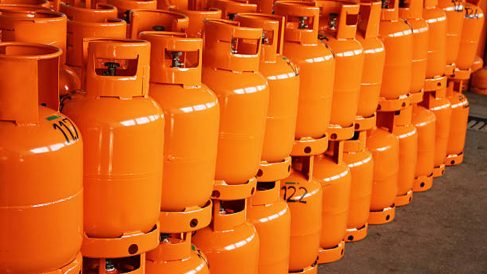In September 2023, the NBS reported a 1.81% increase in the average retail price for refilling a 5kg cylinder of cooking gas when compared to August 2023. This price rose from N4,115.32 to N4,189.96 in just one month, signaling continued financial pressure on Nigerian households. Cooking gas is a staple for many homes in the country, and any price increase can strain household budgets.
Simultaneously, the price per litre of kerosene, another crucial fuel source for many Nigerians, saw a 2.09% increase during the same period, reaching N1,299.03 in September, up from N1,272.40 in August. Kerosene is widely used for cooking and lighting in many households, especially in areas with limited access to electricity. Therefore, these price hikes are a matter of great concern for the welfare of the population, cooking gas prices.
On a year-on-year basis, the report offers a glimmer of hope as it shows a 6.36% decrease in the price of cooking gas compared to September 2022. This decrease could be attributed to various factors, including market dynamics and government policies that influence fuel prices.
When the report delves into state-level analysis, it reveals regional disparities in pricing. For example, Kwara recorded the highest average price for refilling a 5kg cylinder of cooking gas at N4,866.60, closely followed by Benue and Adamawa. In contrast, Ondo State offered the lowest price at N3,364.62, with Ekiti and Edo not far behind.
Furthermore, the average retail price for refilling a 12.5kg gas cylinder increased by 0.58% on a month-to-month basis, from N9,194.41 in August 2023 to N9,247.40 in September 2023. However, when looking at a year-on-year perspective, there is a more encouraging 6.65% reduction from September 2022.
In this category, Cross River recorded the highest average retail price for the refilling of a 12.5kg Liquid Natural Gas (LNG) cylinder, followed by Ogun and Nasarawa. In contrast, Adamawa had the lowest average price, followed by Borno and Gombe.
For household kerosene, the NBS reports a concerning 37.13% year-on-year increase in the average retail price per litre of the product, starting from N947.30 in September 2022. In September 2023, Adamawa recorded the highest average price per litre, followed by Cross-River and Abuja, while Jigawa had the lowest price, followed by Enugu and Kano.
When examining regional disparities, the North-East recorded the highest average retail price per litre of household kerosene, followed by the South-East. In contrast, the North-West had the lowest prices.
The report also highlights the average retail price per gallon of household kerosene, which increased by 0.64% from August 2023 to September 2023, reaching N4,379.31. On a year-on-year basis, there was a substantial 35.32% increase in prices compared to September 2022.
When it comes to state profiles, Lagos recorded the highest average retail price per gallon of household kerosene, followed by Katsina and Borno. Conversely, Delta had the lowest price, followed by Rivers and Oyo.
In terms of regional analysis, the North-East recorded the highest average retail price per gallon of household kerosene, followed by the South-East, while the South-South region had the lowest prices.
Conclusion: cooking gas and kerosene prices

The NBS report indicates that the cost of essential household fuels like cooking gas and kerosene has continued to rise, placing financial pressure on Nigerian households. These increases affect daily living expenses and further underscore the importance of monitoring and addressing the factors contributing to these price hikes. While some year-on-year decreases provide a glimmer of hope, the overall trend remains concerning for consumers. Addressing the affordability and accessibility of these fuels is crucial for the well-being of Nigerian households.

